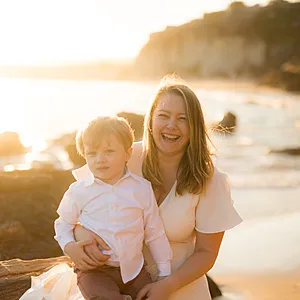Two Catherines: A Twisted Scotland Island Tale, is a specially-written historical play, conceived by Robyn Iredale and written by well-known scriptwriter Jasper Marlow. The 90-minute production will be premièred over two weekends on Scotland Island in Pittwater, performed by a talented team of local actors.
The opening night performance is this Friday, 16 June, at 7.30pm in the Scotland Island Community Hall (see performance times below or book tickets here).
Manly Observer spoke to author-producer Robyn Iredale, an Associate Professor as well as President of Scotland Island Residents Association (SIRA), about this unique, Northern Beaches-themed theatrical production.
What inspired you to create this play?
“I had the idea for the play after starting up the Two Catherines Café on the island 3-4 years ago,” she revealed. “As an ex-teacher and academic, I was keen to generate interest in the history of the island and its surrounding area, and to stimulate more community involvement after the pandemic.”

In the August 2021 edition of the Pittwater Offshore SIRA community newsletter, the concept of the play (then still in development and in need of funding and a scriptwriter), was summarised:
“Robyn Iredale, a long-time offshore resident, has already given us the Two Catherines Café… The café meets twice monthly at Scotland Island Community Hall.
“The café’s name refers to Catherine Benns and Catherine Bouffier, two women associated with the island’s history. As far as we know they never met. But what if they had? What would they have had in common? And what would have driven them apart?”
Play’s plot
Without revealing too much of the storyline, the play focuses on the two women, wine merchant Catherine Bouffier (née Gattenhof, a German immigrant and prominent businesswoman), and respected midwife Catherine Benns (née Ferdinand, an Indigenous woman from the Hawkesbury).
Catherine Benns was a granddaughter of Bungaree and his wife Cora Gooseberry. Bungaree is the distinguished Aboriginal man who accompanied navigator Matthew Flinders (who coined the name ‘Australia’) on their pioneering 1802-03 circumnavigation of Australia.
The two Catherines were both historical residents of Scotland Island.
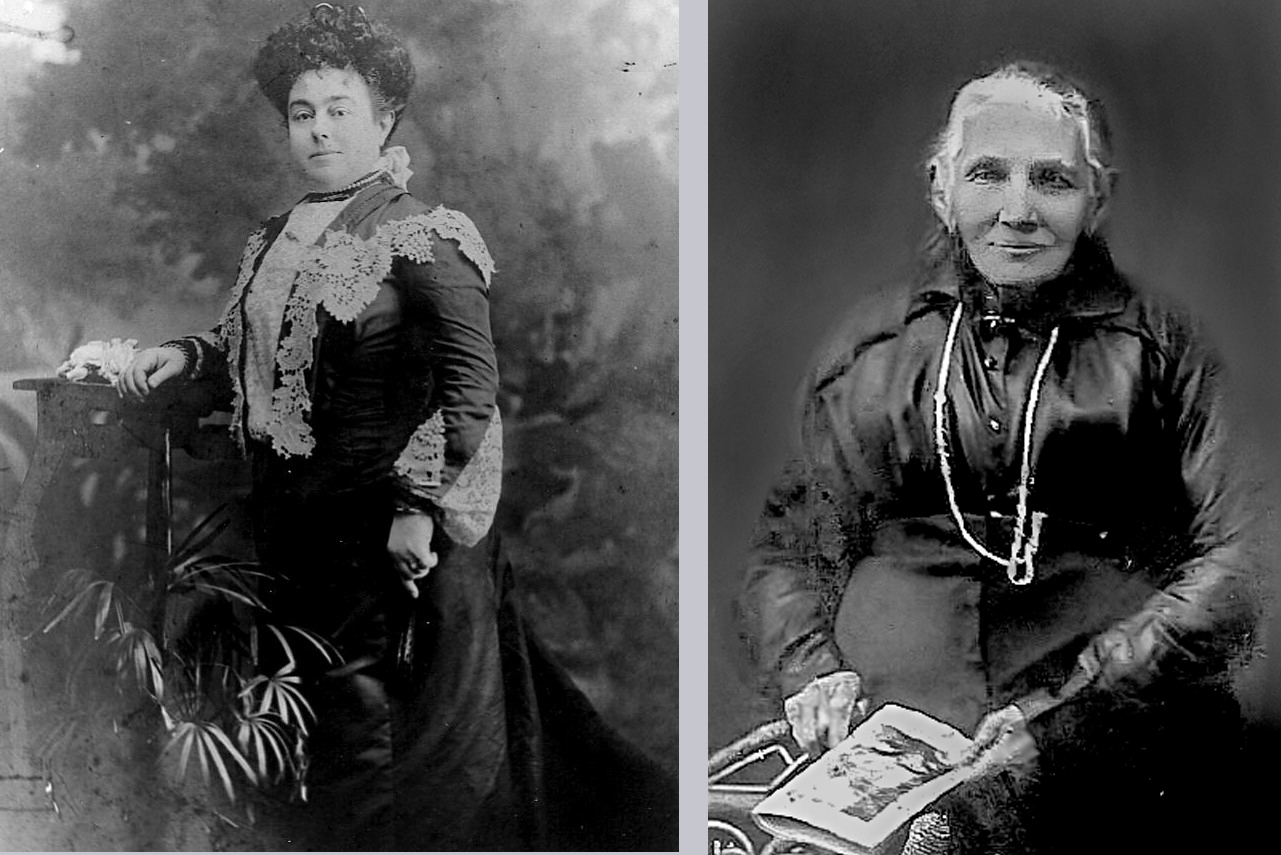
The SIRA newsletter continued, “The play, to be performed on Scotland Island… will imagine a meeting between the two Catherines….
“Catherine Benns was Aboriginal. Catherine Bouffier was white. The paradigm of human contrast is that between the European settlers of this land and its indigenous peoples. But were those differences more than skin deep?
“If ever the Catherines’ paths crossed then it would have been just as Pittwater was on the cusp of tremendous change. A meeting was most likely in the immediate aftermath of World War I.”
Wine and razors
The program states: “The play is staged around a wine exhibition which Bouffier holds on the island. The audience for her exhibition and sale consists of island residents who are keen to taste the Bouffier Bros wines. Unbeknown to Bouffier, Jo Benns is in the audience and he knows where his wife hid her treasures but he is reluctant to say.”
To add further spice to the ‘twisted tale’, notorious Sydney brothel madam and crime boss Matilda ‘Tilly’ Devine, aka the ‘Queen of Woolloomooloo’, is central to the story.
Tilly infamously presided over razor gangs in her 1920s bloody turf wars with fellow criminal mastermind, Kate Leigh, aka the ‘Queen of Surry Hills’.
Incidentally, before the Taxation Department caught up with her and reduced her to bankruptcy, Tilly, then one of Sydney’s richest women, purchased a house on the north side of Scotland Island. Close to Tennis Court Wharf and adjacent to Catherine Park (named after Catherine Bouffier featured in the play), here call-girls in Tilly’s employment reportedly enjoyed holiday breaks.
There is a local legend that a cache of money and jewellery remains buried somewhere on the island, not that by Catherine Benns (as featured in the play) but Tilly Devine, which she hid from the tax authorities.
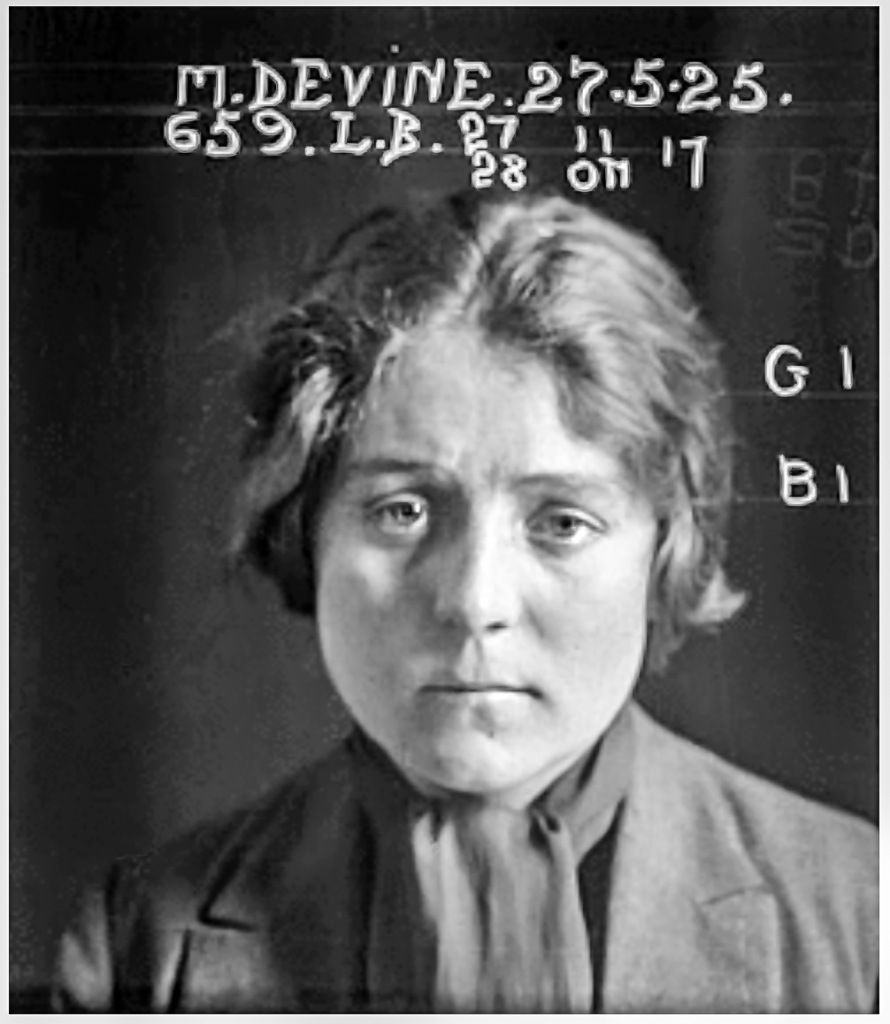
Creators
Playwright Jasper Marlow, who responded to an advertisement for a scriptwriter, is known for writing episodes of TV soap Home & Away, Irish drama Fair City, and was head writer on Australian animated teen series Sunset Paradise.
He’s also worked abroad in Germany and Ireland. So what drew Jasper to write about Scotland Island – apart, perhaps, from its close proximity to the Palm Beach film set of Home & Away?
“Jasper Marlow’s mother owns a house on Scotland Island and he is a regular visitor to the island,” Robyn revealed.
Is this Jasper’s first foray into live theatre?
“He did some live community theatre at the beginning of his career, and was keen to work on this project.” Jasper’s first full-length play, Zetland, debuted at the 2010 Sydney Fringe Festival and was nominated for Best New Work.
“He was mentored by another island resident [Greg Waters] who is a well-known script writer,” Robyn added.
The play’s director, Sophie Lepowic, grew up in Belgium and lived in the French West Indies, and has acted in numerous roles. After emigrating to Sydney she studied screen acting at NIDA and Point Break Drama on the Northern Beaches (which we featured recently in Manly Observer).
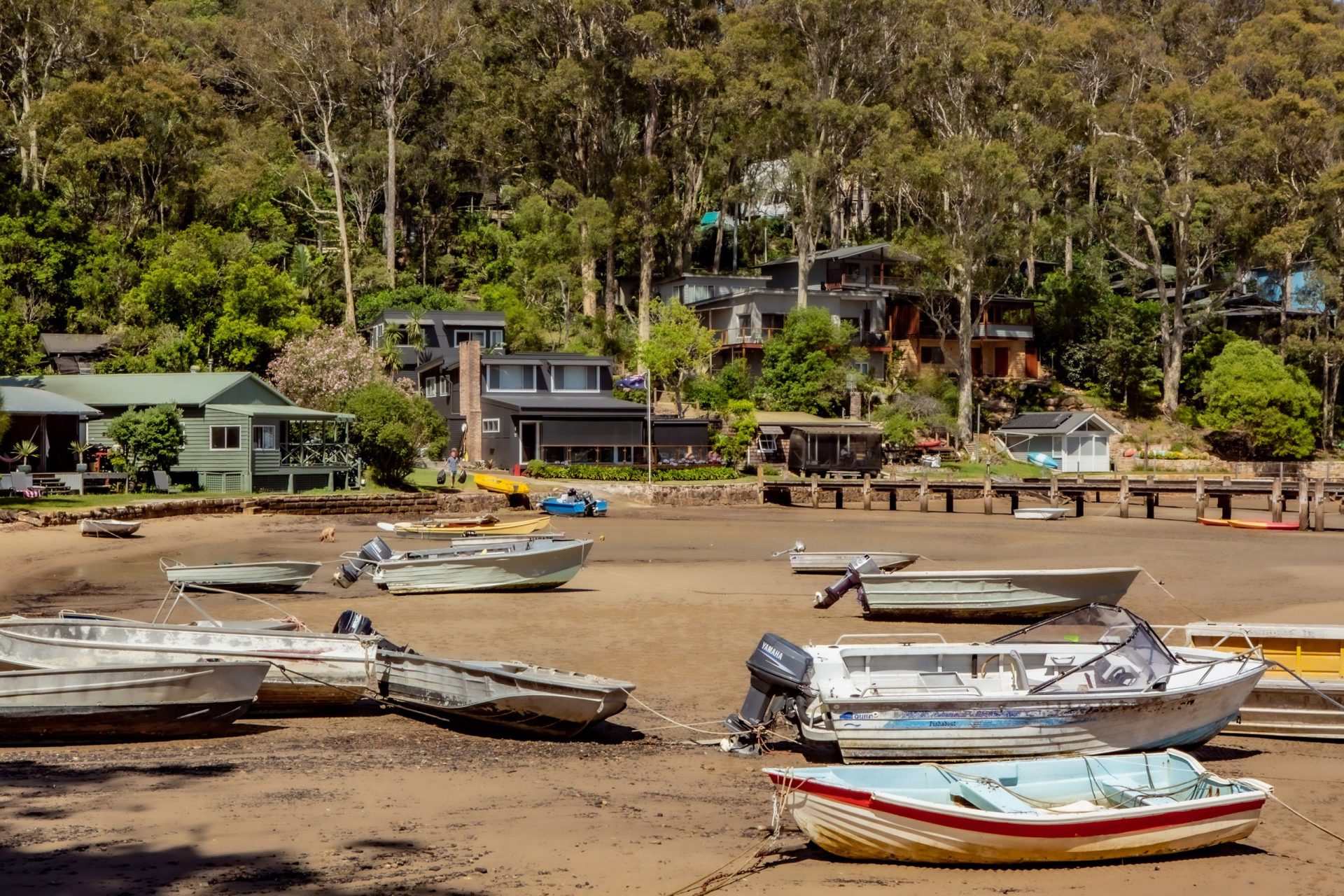
What inspired Sophie to direct this play?
“Sophie Lepowic is new to the bays near Scotland Island and she answered a call out to participate in the play,” Robyn said. “It quickly became evident that she should play Catherine Bouffier and then I approached her about being the Director. She happily agreed to this.”
Island origins
Why did the cast choose to perform the play on Scotland Island, rather than in a Northern Beaches venue?
“There are a number of stages available for use on Scotland Island and we chose our Community Hall as the most suitable venue,” Robyn explained. “The setting has been developed as we go along and includes moveable tree logs, the historian’s desk and a wine display which replicates the one that Catherine Bouffier first developed when she took over promoting Bouffier Bros wines in the early 1900s. A backdrop of trees sets the scene for the island.”
She continued, “The play was developed for the island and hence has many references to the island. We conducted a number of workshops on both the Indigenous and non-Indigenous history of the island, involving various experts.
“We also involved Neil Evers, a great-great nephew of Catherine Benns, and Vivianne Byrnes, a great-great-grand-daughter of Catherine Bouffier.”
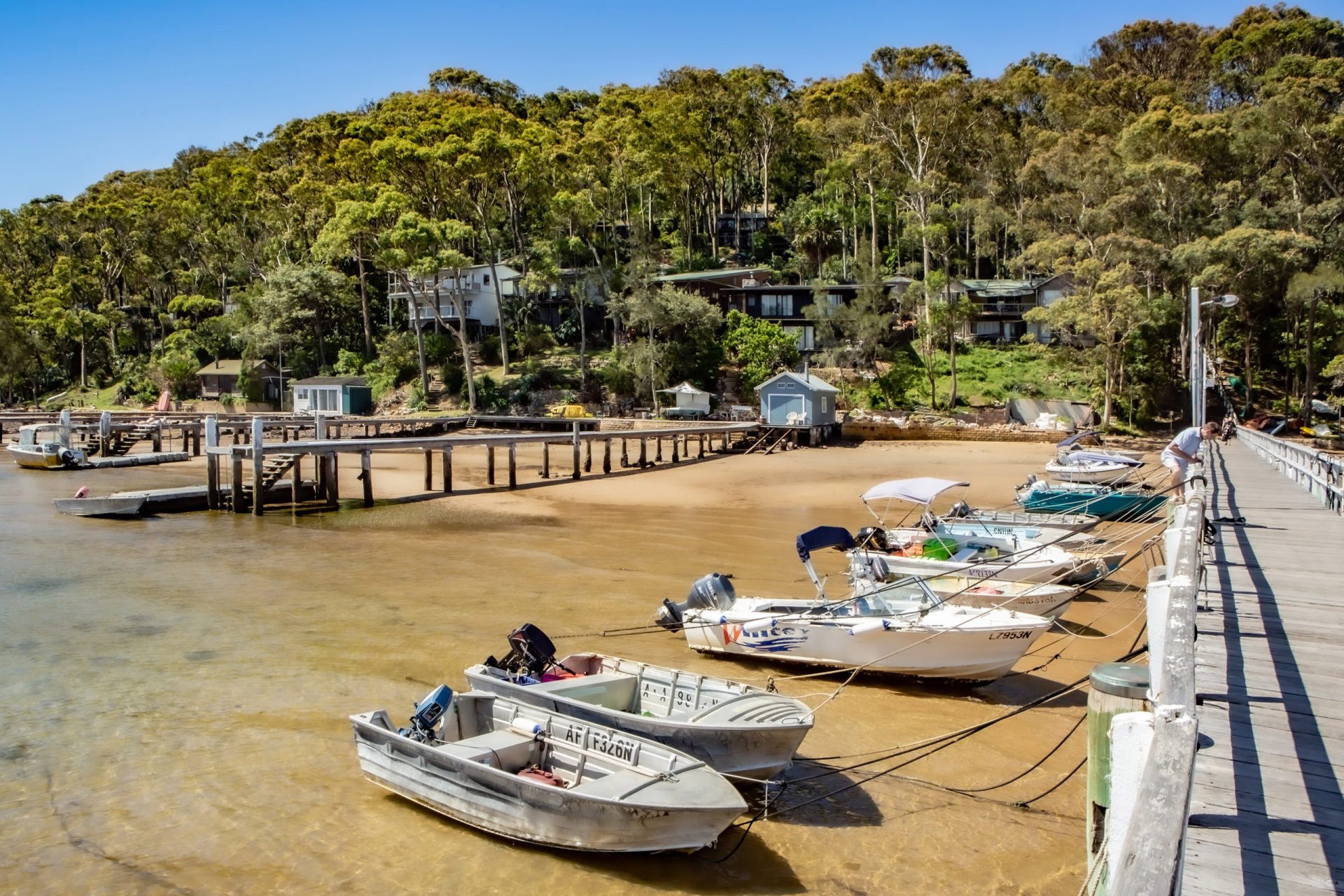
Anything she’d like to add?
“I have had tremendous assistance from Kay Reaney [Executive Producer] throughout the production of this play. This is my first foray into amateur theatre but I say my skills as an academic researcher have been well utilised. ‘Having an idea, talking around, cultivating interest and enthusiasm and forming a team of people with different skills’ is the recipe for both.
“The difference is that you don’t need a lot of money for amateur theatre and local businesses were approached and have donated to help us out…
“Musical Director Markus Plattner has developed most of the music and Lisa Day will sing all four songs. She is a professional singer.”
Are there plans to take the production further afield after its Scotland Island run?
“It could have wider appeal as it is a lively, engaging show…”
Two Catherines: A Twisted Scotland Island Tale
Performance times:
Friday 16 and Saturday 17 June, 7.30pm.
Friday 23 June, 7.30pm.
Saturday 24 June, 3.00pm and 7.30pm.
Location:
Scotland Island Community Hall, Scotland Island (north side), Pittwater.
Commuting from Church Point Wharf to Tennis Wharf
7.00pm ferry on Fridays 16 and 23 June.
6.30pm ferry on Saturdays 17 and 24 June.
2.10pm ferry on Saturday 24 June for matinee performance, 4.40pm return.
Water taxi: 0428 238190 ($36 for up to six people).
Tickets: Adults $30, Concession $15.
https://www.eventbrite.com/e/two-catherines-a-twisted-scotland-island-tale-tickets-614985627567
Refreshments and food will be available.




